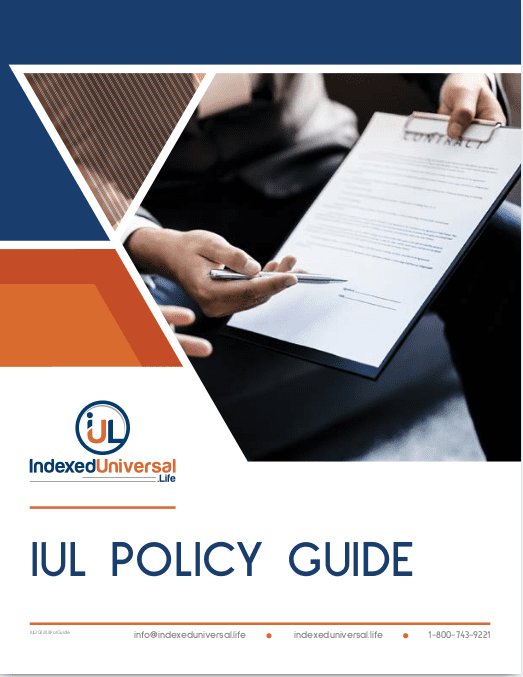All Categories
Featured
Table of Contents
Do they compare the IUL to something like the Vanguard Total Amount Supply Market Fund Admiral Shares with no load, a cost ratio (EMERGENCY ROOM) of 5 basis points, a turnover ratio of 4.3%, and an exceptional tax-efficient document of circulations? No, they compare it to some terrible proactively managed fund with an 8% lots, a 2% ER, an 80% turnover proportion, and an awful document of temporary capital gain circulations.
Common funds frequently make annual taxed circulations to fund owners, also when the value of their fund has actually dropped in worth. Common funds not just call for revenue reporting (and the resulting yearly taxes) when the mutual fund is going up in worth, however can likewise impose earnings tax obligations in a year when the fund has actually gone down in worth.
You can tax-manage the fund, collecting losses and gains in order to decrease taxed circulations to the capitalists, but that isn't in some way going to change the reported return of the fund. The ownership of mutual funds may require the common fund proprietor to pay estimated taxes (indexed universal life insurance companies).

IULs are very easy to position to make sure that, at the proprietor's death, the recipient is exempt to either revenue or inheritance tax. The very same tax decrease methods do not function almost as well with shared funds. There are numerous, frequently expensive, tax obligation catches related to the moment trading of common fund shares, traps that do not apply to indexed life insurance policy.
Opportunities aren't extremely high that you're mosting likely to be subject to the AMT because of your mutual fund distributions if you aren't without them. The remainder of this one is half-truths at ideal. For example, while it is real that there is no earnings tax obligation because of your beneficiaries when they acquire the proceeds of your IUL policy, it is also real that there is no earnings tax obligation because of your successors when they acquire a shared fund in a taxable account from you.
Nationwide Indexed Universal Life Accumulator Ii
The federal inheritance tax exemption limit is over $10 Million for a couple, and expanding annually with inflation. It's a non-issue for the vast bulk of doctors, much less the remainder of America. There are better methods to avoid estate tax obligation problems than purchasing investments with low returns. Shared funds may trigger income taxation of Social Protection benefits.

The development within the IUL is tax-deferred and might be taken as tax obligation free income by means of car loans. The plan proprietor (vs. the common fund supervisor) is in control of his/her reportable income, therefore allowing them to minimize or perhaps remove the tax of their Social Safety and security advantages. This is fantastic.
Here's an additional very little issue. It holds true if you acquire a mutual fund for state $10 per share prior to the distribution date, and it distributes a $0.50 circulation, you are then going to owe taxes (possibly 7-10 cents per share) regardless of the truth that you haven't yet had any type of gains.
In the end, it's really about the after-tax return, not exactly how much you pay in taxes. You're likewise most likely going to have even more cash after paying those taxes. The record-keeping needs for having mutual funds are considerably extra intricate.
With an IUL, one's documents are maintained by the insurer, duplicates of yearly declarations are sent by mail to the owner, and circulations (if any) are amounted to and reported at year end. This is also sort of silly. Naturally you must maintain your tax obligation records in situation of an audit.
Whole Life Vs Indexed Universal Life
Rarely a factor to get life insurance policy. Common funds are typically part of a decedent's probated estate.
In addition, they go through the delays and expenditures of probate. The proceeds of the IUL policy, on the other hand, is constantly a non-probate distribution that passes beyond probate straight to one's called beneficiaries, and is as a result exempt to one's posthumous lenders, unwanted public disclosure, or comparable delays and expenses.
Medicaid incompetency and lifetime earnings. An IUL can give their owners with a stream of revenue for their entire lifetime, no matter of how lengthy they live.

This is helpful when arranging one's events, and converting possessions to income prior to a nursing home arrest. Common funds can not be transformed in a similar manner, and are often thought about countable Medicaid assets. This is one more dumb one supporting that bad people (you recognize, the ones that need Medicaid, a government program for the poor, to pay for their nursing home) should use IUL as opposed to common funds.
Iul Insurance Pros And Cons
And life insurance policy looks awful when compared fairly against a pension. Second, people that have money to purchase IUL over and past their retired life accounts are going to have to be dreadful at taking care of money in order to ever before get Medicaid to spend for their assisted living home prices.
Chronic and incurable disease biker. All plans will allow a proprietor's very easy accessibility to cash from their plan, usually waiving any surrender charges when such people endure a major ailment, need at-home care, or end up being constrained to a retirement home. Common funds do not supply a comparable waiver when contingent deferred sales costs still use to a mutual fund account whose proprietor needs to offer some shares to fund the expenses of such a remain.
Iul Explained
You obtain to pay more for that advantage (rider) with an insurance policy. Indexed global life insurance coverage gives fatality benefits to the recipients of the IUL proprietors, and neither the owner nor the beneficiary can ever before shed money due to a down market.
Now, ask yourself, do you really need or want a fatality advantage? I absolutely do not need one after I get to monetary self-reliance. Do I want one? I expect if it were cheap enough. Naturally, it isn't economical. Generally, a buyer of life insurance policy pays for real price of the life insurance coverage benefit, plus the costs of the plan, plus the earnings of the insurance provider.
Iul Tax Free
I'm not completely certain why Mr. Morais included the whole "you can't shed cash" once more here as it was covered quite well in # 1. He just intended to repeat the finest marketing factor for these points I intend. Once again, you don't lose nominal bucks, but you can lose real bucks, as well as face serious chance price as a result of low returns.

An indexed global life insurance coverage policy proprietor may trade their plan for an entirely various plan without setting off earnings tax obligations. A shared fund proprietor can not move funds from one common fund company to another without selling his shares at the former (thus setting off a taxed occasion), and buying new shares at the latter, commonly based on sales charges at both.
While it is real that you can exchange one insurance coverage for one more, the reason that people do this is that the very first one is such an awful policy that even after acquiring a brand-new one and experiencing the early, negative return years, you'll still come out in advance. If they were marketed the best plan the very first time, they should not have any kind of need to ever exchange it and experience the very early, adverse return years once again.
Latest Posts
Prudential Iul
Group Universal Life Insurance Pros And Cons
Which Is Better Term Or Universal Life Insurance